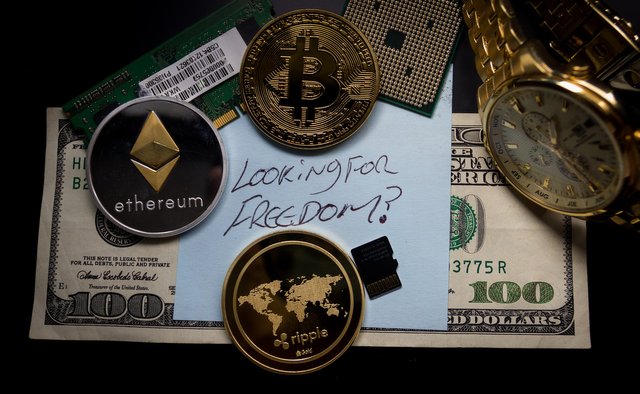
When earning and spending money you repeatedly hand over slices of your money to middlemen; these often add up to millions of dollars over someone's lifetime. With cryptocurrency it promises to stop the outflow of money and back to your wallet.
This certainly does not mean that cryptocurrency is flawless and risk-less, bitcoin’s mechanism of computer owners incentivizing to maintain and manage the public ledger—which drives them to compete for batches of newly issued bitcoins every ten minutes—could encourage a politically disruptive concentration of computing power. Even as bitcoin aims to decentralize monetary power, capitalism’s innate monopolizing tendencies could lead some players to accumulate enough computing power to seize control of the network and revert a trustworthy, decentralized system back to one where self-interested, centralized institutions are in control. Bitcoin is not currently under such a threat, and many believe it would never arise because computer owners who profit from owning bitcoins have no interest in destroying it. Still, the threat cannot be fully eliminated. Bitcoin and crime have been associated, as seen in the Silk Road case, where users sought to exploit the digital currency’s anonymity to sell drugs and launder money.
The system we use now for managing exchanges of currency and assets dates back to the time of the Medici family of the Florentine Renaissance, when banks first assumed dominance in the monetary economy of Europe. These guys were the ultimate technological disrupter's, radical thinkers who discovered a vital need in society and then filled it. In essence, they figured out how to intermediate between savers and borrowers, bringing in the excess capital of the former and parceling it out to those among the latter who needed it—all for a fee.

Enter cryptocurrency—the category to which bitcoin belongs. The simple genius of this technology is that it cuts away the middleman yet maintains an infrastructure that allows strangers to deal with each other. It does this by taking the all-important role of ledger-keeping away from centralized financial institutions and handing it to a network of autonomous computers, creating a decentralized system of trust that operates outside the control of any one institution. At their core, cryptocurrencies are built around the principle of a universal, inviolable ledger, one that is made fully public and is constantly being verified by these high-powered computers, each essentially acting independently of the others. In theory, that means we don’t need banks and other financial intermediaries to form bonds of trust on our behalf. The network-based ledger—which in the case of most cryptocurrencies is called a blockchain—works as a stand-in for the middlemen since it can just as effectively tell us whether the counterparty to a transaction is good for his or her money.
The “issues of trust” to which Summers refers are the core problem that the Medici bankers first sought to solve, the dilemma that strangers face when they seek to do business with each other.At its core, cryptocurrency is not about the ups and downs of the digital currency market; it’s not even about a new unit of exchange to replace the dollar or the euro or the yen. It’s about freeing people from the tyranny of centralized trust. It speaks to the tantalizing prospect that we can take power away from the center—away from banks, governments, lawyers, and the tribal leaders—and transfer it to the periphery, to We, the People.
We are telling the story of bitcoin, but the thing we’re really trying to do is to figure out exactly where cryptocurrencies fit into the world, to put this big puzzle together. It’s a big story, one that spans the globe. I am left with one question, Are you ready to jump down the bitcoin rabbit hole?
#Source: THE AGE OF CRYPTOCURRENCY by Paul Vigna & Michael J. Casey
Congratulations @justshabir! You have completed some achievement on Steemit and have been rewarded with new badge(s) :
Click on any badge to view your own Board of Honor on SteemitBoard.
For more information about SteemitBoard, click here
If you no longer want to receive notifications, reply to this comment with the word
STOPDownvoting a post can decrease pending rewards and make it less visible. Common reasons:
Submit
I'm just looking to establish a position in the Steemit community, and would appreciate to find some people like me, so we can mutually support one another. subscribe @coinlocket
Downvoting a post can decrease pending rewards and make it less visible. Common reasons:
Submit